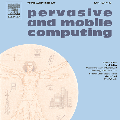Given an undirected graph $G=(V,E)$ (i.e. the conflict graph) where $V$ is a set of $n$ vertices (representing the jobs), processing times $p \colon V \to \mathbb{Z}_>$, and $m\geq 2$ identical machines the Parallel Machine Scheduling with Conflicts (PMC) consists in finding an assignment $c \colon V \to [m]:=\{1,\ldots, m\}$ with $c(u)\neq c(v)$ for all $\{u,v\} \in E$ that minimizes the makespan $\max_{k \in [m]} \sum_{v \in V \colon c(v)=k} p(v)$. First we consider the natural assignment formulation for PMC using binary variables indexed by the jobs and machines, and discuss how to reduce the symmetries in such model. Then we propose a compact mixed integer linear programming formulation for PMC to tackle the issues related to symmetry and unbalanced enumeration tree associated with the assignment model. The proposed formulation for PMC uses a set of representative jobs (one in each machine) to express feasible solutions of the problem, and it is based on the representatives model for the vertex coloring problem. We present a polyhedral study of the associated polytope, and show classes of valid inequalities inherited from the stable set polytope. We describe branch-and-cut algorithms for PMC, and report on preliminary computational experiments with benchmark instances.
翻译:暂无翻译



